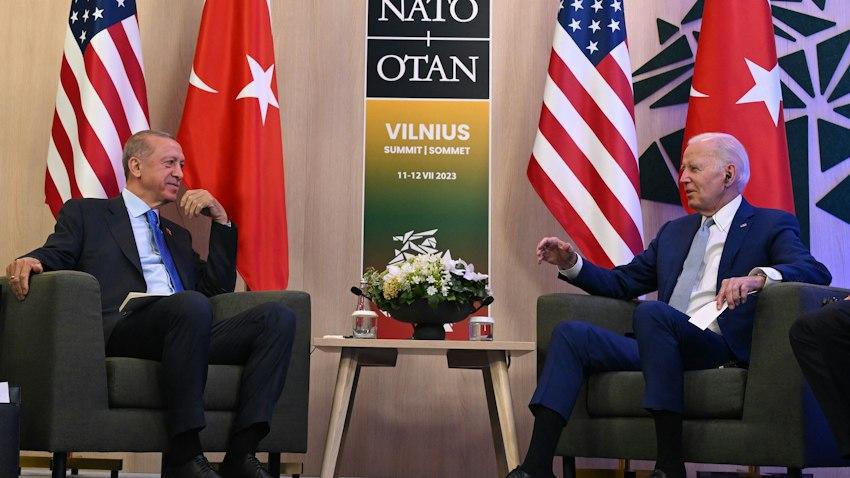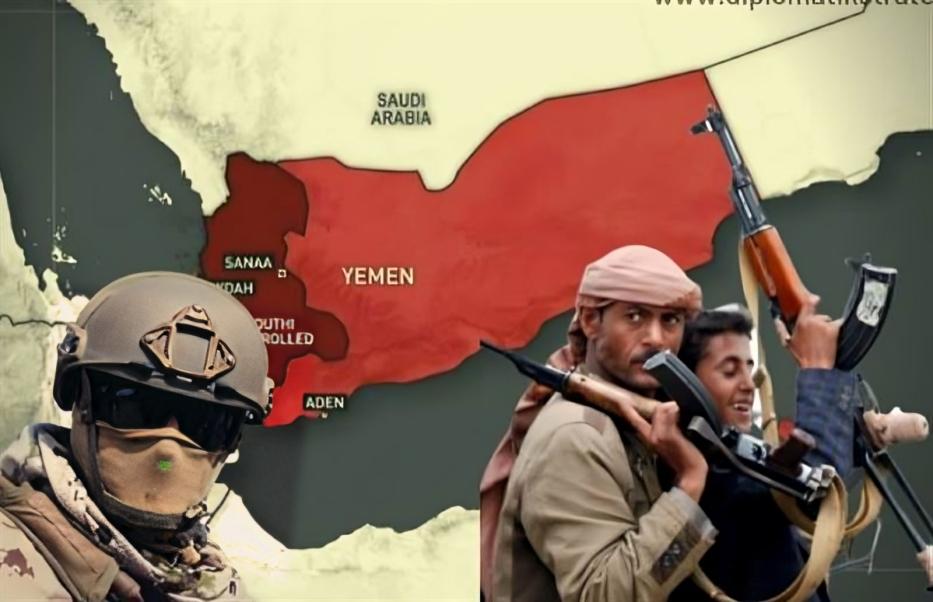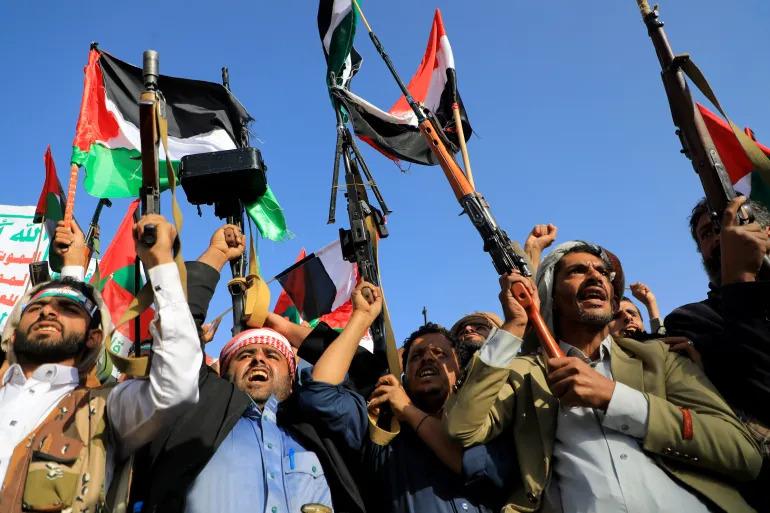Why does Türkiye criticize US airstrikes against Houthis? Efforts to expand soft power in Yemen
The heightening tensions in the Middle East region amid the Israel-Hamas war triggered new armed clashes with the involvement of other state and non-state actors, such as Iranian-backed Hezbollah, Iraqi militants, Houthi rebels in Yemen, and the remnants of the so-called Islamic State militant group in Syria.
Israel’s ambush on Hamas based in the Gaza Strip stirred antisemitism globally, while its arch-rival Iran pushed its proxy groups to launch attacks against Israel and its allies.
As such, since January, Yemen-based Houthi rebels began attacks on commercial vessels in the Red Sea, disrupting global oil trade. As a result, on January 12, the US and U.K. militaries launched strikes against multiple targets in Houthi-controlled areas of Yemen, marking a significant response after the Biden administration and its allies warned that the Iran-backed militant group would bear the consequences of repeated drone and missile attacks on commercial shipping in the Red Sea.
Although many regional countries expressed vocal and muted support for the US actions against Houthis, others, like Türkiye and Iran, harshly criticized the decision, citing that it will destabilize the fragile region more. Official Ankara slammed the US and British strikes on Houthi targets in Yemen as a disproportionate use of force and accused the two countries of trying to turn the Red Sea into a "sea of blood."

In the last decade, Türkiye, under the rule of President Recep Tayyip Erdogan, put enormous efforts to expand Turkish soft power in Yemen, albeit it faced major setbacks due to the Houthi takeover of Sanaa in 2014 and the subsequent entry of the Saudi-led military coalition into the country’s civil war, of which Ankara has not been a major actor.
Simultaneously, Ankara took a firm stance regarding the expansion of the radical terrorist network in its close vicinity, including the Kurdish separatist movement. However, in the case of Houthis, Türkiye preferred to refrain from joining the new US-led maritime coalition in the Red Sea to avoid entanglement in regional conflicts.
Ankara is unlikely to participate in the initiative, preferring instead to balance its relations with various counterparts. It is also wary of being cast into either an explicitly pro- or anti-Houthi bloc—and of shedding its pro-Palestinian positioning.

In light of criticism of the US and the UK, Türkiye also fiercely criticized Iran’s proxy warfare strategy and endless efforts to meddle in Yemeni affairs via sponsorship of the Houthi rebellion. Erdogan went even further to accuse Iran of trying to dominate the region via its sectarian agenda.
Despite criticism, Ankara is unlikely to build severe ties with Tehran as both states share a common perception of threat, namely the Kurdish question. On the other hand, the Turkish government pursues a neutral position toward Saudi Arabia and its involvement in the Yemen war.
Indeed, it is in Türkiye’s interest to maintain balance in the region and avoid potential Iran-Saudi confrontation at its doorstep. Simply put, Ankara does not want to torpedo its currently strong relationship with the Kingdom by joining the US-led coalition and potentially threatening the Yemen peace talks.
From that point on, the Turkish role in the Yemeni crisis has varied in scope and type, shifting between security, politics, diplomacy, and humanitarianism depending on the situation on the ground and Riyadh's position vis-a-vis Türkiye.

The bigger picture is that Ankara is disturbed by the influence of Iran-backed movements in the region, as it has clashed with armed groups close to Iran in places like Iraq and Syria. Ankara-Tehran rivalry goes beyond the Middle East, including Central Asia and the South Caucasus regions.
Iran does not hide discontent with the rising Turkish expansion in the Caucasus, namely in Azerbaijan, in the post-Karabakh war in 2020. Consequently, Turkish expansion in the Caucasus provided it safe passage to Central Asia.
The continuous war in Gaza and Türkiye and Iran’s pro-Palestinian sentiments will make the political reconciliation and resolution of conflicts in the Middle East more complex. Despite harsh criticism and demands, the US strongly backs Israel in its full-scale military operation against Hamas, which caused significant human casualties among civilian Palestinians.








